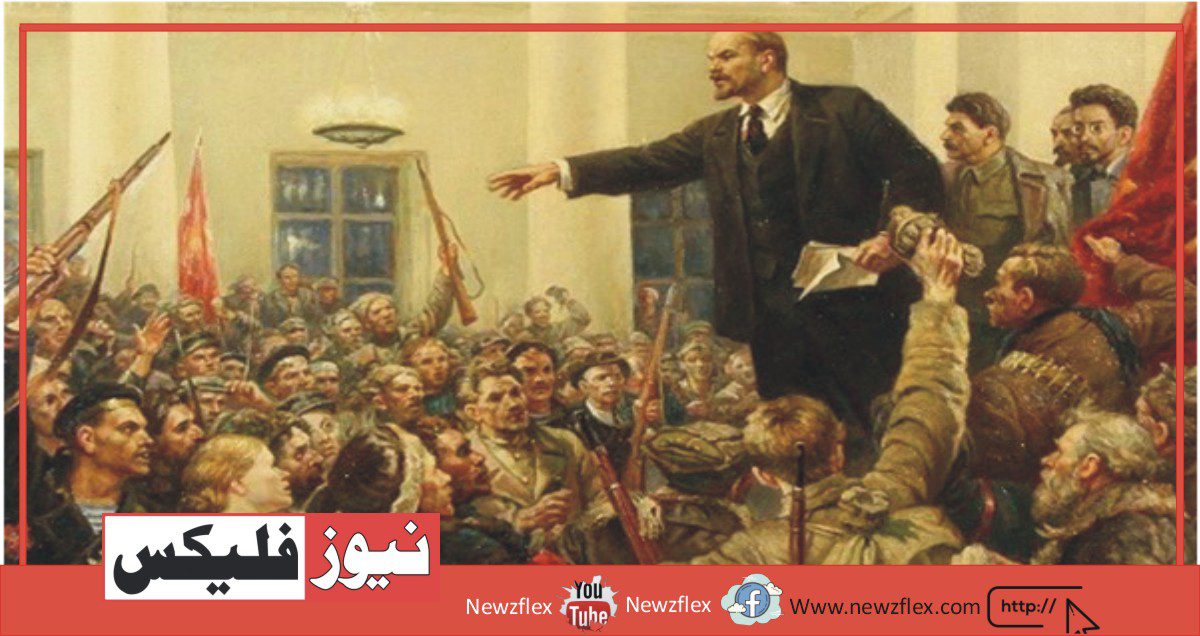
Maulana Ubaidullah Sindhi
Maulana Ubaid Ullah Sindhi was an excellent political, religious and revolutionary scholar of the sub-continent. He rendered a limitless contribution to the independence of Muslims. Attributable to his efforts, he’s known by every Muslim.
He visited places to motivate Muslims to inform them about their basic rights. He raised his voice against the British government and tried his utmost to unite Muslims of the world. Not only did he play a vital role in imparting religious education but also made aware Muslims of the importance of jihad. He also worked for an organization called “Jamiat-ul-Ansar”.
Aside from this, he did numerous other works which were in favour of Muslims. He was also keen on seeking knowledge. That’s why; he sought knowledge not only in his birthplace but also in well-known Islamic institutions like DAR UL ULOOM DEOBAND. During this time, he learned about the golden tenets of Islam. Before mentioning his contribution, it’s pertinent to throw light on his biography.
Early Life:
Maulana Ubaidullah Sindhi was born on 10th of March, 1872 at Sialkot. In his childhood, he belonged to a Sikh family. His early name was BOOTA SINGH. His father’s name was Ram Singh, on the other hand, his mother’s name was PRAIM KAUR. Before his birth, his father died and he was stated by his grandfather and his mother. After the death of his grandfather, he was nourished by his maternal grandfather at Jampur where he received primary education which was supported by secular education.
In his childhood, he was accustomed to respecting all sorts of religions and was keen and inquisitive about knowing the foundations of assorted religions. When he became a posthumous child, he was never disappointed. He faced all types of troubles and removed hurdles with unshakeable confidence and powerful determination.
ACCEPTANCE OF ISLAM AND RELIGIOUS EDUCATION:
At the age of sixteen, he embraced Islam in August 1887. The force which attracted Sindhi’s attention was the books of Muslim scholars. Those books were TAQWIAT-AL-IMAM written by SHAH ISMAIL and also the second book was AHWAL-AL-AKHIRAH. Besides, the first book which was given to Sindhi by a Hindu friend was “Tuhfatul Hind”. This book was written by Maulana Ubaidullah of Malerkotla.
Because of this book, ample love for becoming Muslim began to be made in Sindhi’s heart. With time, he kept himself in reality with Muslim scholars. After entering the fold of Islam, he left his home and visited BHARCHUNDI (A TOWN in district Ghosts Sindh). He became an addict to Hafiz Muhammad Siddique who was a great Sufi saint of his time. attributable to the limitless love given by his murshid, he added the word “Sindhi” at the end of his name.
After four months, he was permitted by his murshid to get higher Islamic education at DAR AL ULOOM DEOBAND. Maulana Sindhi got admission to Dar ul Uloom Deoband in the month of SAFAR1306 A.H. October 1888. Here he became a person of versatile genius and he paid proper heed to his education.
Within a brief period, he learned logic, Arabic, Grammar, and Philosophy. He also became an excellent student of Sheik al HIND, Hazrat Maulana Mahmud Hassan. After getting an education at Deoband, Rampur, Gangosh, and DEHLI, he arrived in Sindh and commenced teaching at AMROT SHARIF.
Role in Pan-Islamism
Slowly and gradually, he entered himself into the pan-Islamic movement. He wanted to bring Muslims out of the thick blankets of darkness and depression. He tried tooth and nail to bring Muslims under one umbrella for demanding a separate state. He played a great role in “Jamiat-ul-Ansar”. When he visited Delhi the promote the worth of this organization, he gave top priority to the youth and instilled the spirit of jihad into their minds.
Moreover, he also visited AFGHANISTAN to hunt for help from them. During the first war, Maulana Sahib told Afghanistan’s government that Muslims were victimized by the British and Indians. So, I came here to launch jihad against both of these influential communities. He made aware to Afghani people aware of the importance of the geo-strategic position of Afghanistan.
After some years, Sindhi presented a memorandum to SHAIKH MUHAMMAD IBRAHIM. The salient feature of the memorandum was that it presented Maulana as a Muslim meliorist from India who stood for the reason behind Hindus were still Muslims of the sub-continent. He also formed an organization by the name of “JUNUD ALLAH” in Sher Bazaar. Besides, in 1915, the provisional government of India was formed by Raja Mahendra Pratap, and Maulana Sindhi also joined it.
Furthermore, Maulana Ubaid Ullah Sindhi visited Russia. He lived there for nearly five to 6 months. the aim of visiting Russia was the invitation of SOVIET leadership. Maulana sahib was treated in an exceedingly good manner. while staying there; he studied the ideology of socialism.
He wanted to be with Lenin but because of illness of Lenin, Maulana Sindhi couldn’t meet him. After studying the theory of socialism, he was impressed by that ideology.
In addition, he left Russia for Turkey in 1923. Where he started the third phase of Shah Waliullah’s philosophy and movement. In Istanbul, he published a charter for the independence of India.
He contended that without the support of the communists, they’d not be able to get food in Russia, because a religious leader, or even a standard follower of any religion couldn’t remain in Russia. So, he made cordial relations with Russians, so that Maulana Sahib and his company may lead their life in a very appropriate manner.
With the passage of your time the Russian government officials and a Bengali Hindu M.N. Roy who was the president of the Indian political party, sent Khushi Mohammad to Maulana Sindhi with the suggestion that he should say admission some young colligate of his party to the Eastern University of Moscow.
Apart from this, he visited Hejaz to induce religious education. He also imparted the philosophy of Hazrat shah waliullah and his son Hazrat Shah Ismail Shaheed. He lived there for approximately thirteen years and returned to the sub-continent.
Return to India
According to some historians, the experiences Maulana Ubaidullah Sindhi had acquired in the last twenty-five years he now wanted to convey to the Muslims at large. He was dismayed by the improper behaviour of individuals of Hejaz because they didn’t value his philosophy and knowledge.
Owing to efforts of the congress government of Sindh, headed by K.B Allah Bux Soomro the Indian national congress had succeeded in getting the permission of maulana. Maulana Sahib reached Karachi on the morning of 7th March 1939. The members of the Sindh assembly and Khan Bahadur Allah Bux Soomro warmly welcome him.
Demise
He was affected by acute diarrhoea and was under medical treatment. despite being ill, he presided over a conference of the student federation in Hyderabad. As life is mortal Maulana Ubaidullah Sindhi left this world in 1944 and his grave is found in Rahimyar Khan district.
مولانا عبید اللہ سندھی
مولانا عبید اللہ سندھی برصغیر کے ایک عظیم سیاسی، مذہبی اور انقلابی عالم تھے۔ انہوں نے مسلمانوں کی آزادی کے لیے لامحدود خدمات انجام دیں۔ ان کی کاوشوں کی وجہ سے ہر مسلمان اسے جانتا ہے۔ انہوں نے مسلمانوں کو ان کے بنیادی حقوق کے بارے میں بتانے کے لیے ان کی حوصلہ افزائی کے لیے جگہ جگہ دورہ کیا۔
انہوں نے برطانوی حکومت کے خلاف آواز اٹھائی اور پوری دنیا کے مسلمانوں کو متحد کرنے کی کوشش کی۔ انہوں نے نہ صرف مذہبی تعلیم دینے میں اہم کردار ادا کیا بلکہ مسلمانوں کو جہاد کی اہمیت سے بھی آگاہ کیا۔ انہوں نے ایک تنظیم کے لیے بھی کام کیا جو ‘جمعیت الانصار’ کے نام سے مشہور تھی۔
اس کے علاوہ اور بھی بہت سے کام کیے جو مسلمانوں کے حق میں تھے۔ حصول علم کا بھی شوق تھا۔ یہی وجہ ہے؛ انہوں نے نہ صرف جائے پیدائش بلکہ دارالعلوم دیوبند جیسے معروف اسلامی ادارے میں بھی علم حاصل کیا۔ اس ادارے میں انہیں اسلام کے سنہری عقائد کے بارے میں علم ہوا۔ ان کی خدمات کا ذکر کرنے سے پہلے ان کی سوانح حیات پر روشنی ڈالنا مناسب ہے۔
ابتدائی زندگی
مولانا عبید اللہ سندھی 10 مارچ 1872ء کو سیالکوٹ میں پیدا ہوئے۔ بچپن میں ان کا تعلق سکھ گھرانے سے تھا۔ ان کا ابتدائی نام بوٹا سنگھ تھا۔ ان کے والد کا نام رام سنگھ تھا، دوسری طرف ان کی والدہ کا نام پریم کور تھا۔ ان کی پیدائش سے پہلے ان کے والد کا انتقال ہو گیا اور ان کی پرورش ان کے دادا اور والدہ نے کی۔ اپنے دادا کی وفات کے بعد ان کی پرورش ان کے نانا نے جام پور میں کی جہاں انہوں نے پرائمری تعلیم حاصل کی جو کہ دنیاوی تعلیم پر مبنی تھی۔
بچپن میں وہ ہر طرح کے مذاہب کا احترام کرتے تھے اور مختلف مذاہب کے احکام جاننے میں گہری دلچسپی رکھتے تھے۔ جب وہ بعد از مرگ بچہ بن گیا تو اس نے کبھی مایوس نہیں کیا۔ انہوں نے ہر قسم کی مشکلات کا سامنا کیا اور غیر متزلزل اعتماد اور مضبوط عزم کے ساتھ رکاوٹوں کو دور کیا۔
اسلام اور دینی تعلیم کی قبولیت
سولہ سال کی عمر میں، انہوں نے اگست 1887 میں اسلام قبول کیا۔ جس قوت نے سندھیوں کی توجہ اپنی طرف مبذول کروائی وہ مسلم علماء کی کتابیں تھیں۔ وہ کتابیں تقویت الامام شاہ اسماعیل کی تصنیف تھیں اور دوسری کتاب احوال الآخرۃ تھی۔ اس کے علاوہ پہلی کتاب جو ایک ہندو دوست نے سندھی کو دی وہ ‘تحفۃ الہند’ تھی۔ یہ کتاب مولانا عبید اللہ آف مالیرکوٹلہ نے لکھی ہے۔ اس کتاب کی وجہ سے سندھیوں کے دل میں مسلمان ہونے کی بے پناہ محبت پیدا ہونے لگی۔ وقت گزرنے کے ساتھ ساتھ اس نے خود کو مسلمان علماء سے جوڑ رکھا تھا۔ دائرہ اسلام میں داخل ہونے کے بعد، اس نے اپنا گھر چھوڑ دیا اور بھرچونڈی چلے گئے (ضلع گھوٹکی سندھ کا ایک قصبہ)۔
اپنے مرشد کی لامحدود محبت کی وجہ سے انہوں نے اپنے نام کے آخر میں لفظ ‘سندھی’ کا اضافہ کیا۔ چار ماہ گزرنے کے بعد انہیں اپنے مرشد نے دارالعلوم دیوبند میں اعلیٰ اسلامی تعلیم حاصل کرنے کی اجازت دی۔ مولانا سندھی کو دارالعلوم دیوبند میں صفر 1306 ہجری اکتوبر 1888 میں داخلہ ملا، یہاں وہ ایک ہمہ گیر ذہانت کے آدمی بن گئے اور انہوں نے اپنی تعلیم پر مناسب توجہ دی۔ بہت ہی کم عرصے میں انہوں نے منطق، عربی، گرامر اور فلسفہ سیکھ لیا۔ وہ شیخ الہند حضرت مولانا محمود حسن کے بھی ہونہار شاگرد بنے۔ دیوبند، رام پور، گنگوش اور دہلی میں تعلیم حاصل کرنے کے بعد وہ واپس سندھ آگئے اور امروت شریف میں پڑھانے لگے۔
پین اسلامزم میں کردار
دھیرے دھیرے وہ پین اسلامی تحریک میں شامل ہو گئے۔ وہ مسلمانوں کو اندھیروں اور افسردگی کے گھنے کمبل سے نکالنا چاہتا تھا۔ انہوں نے الگ ریاست کے مطالبے کے لیے مسلمانوں کو ایک چھتری تلے لانے کے لیے دانت اور ناخن آزمایا۔’جمعیت الانصار’ میں انہوں نے بڑا کردار ادا کیا۔ جب وہ اس تنظیم کی قدروقیمت کے فروغ کے لیے دہلی گئے تو انھوں نے نوجوانوں کو اولین ترجیح دی اور ان کے ذہنوں میں جہاد کا جذبہ بسایا۔
مزید یہ کہ وہ ان سے مدد لینے کے لیے افغانستان بھی گئے۔ پہلی جنگ عظیم کے دوران مولانا صاحب نے افغانستان کی حکومت کو بتایا کہ مسلمان انگریزوں اور ہندوستانیوں کے ظلم کا شکار ہیں۔ چنانچہ میں یہاں ان دونوں بااثر برادریوں کے خلاف جہاد شروع کرنے آیا ہوں۔ انہوں نے افغان عوام کو افغانستان کی جیو اسٹریٹجک پوزیشن کی اہمیت سے آگاہ کیا۔ چند سالوں کے بعد سندھی نے شیخ محمد ابراہیم کو ایک یادداشت پیش کی۔
میمورنڈم کی نمایاں خصوصیت یہ تھی کہ اس میں مولانا کو ہندوستان کے ایک مسلم آزادی پسند کے طور پر پیش کیا گیا تھا جو ہندوؤں کے ساتھ ساتھ برصغیر کے مسلمانوں کے لیے بھی کھڑا تھا۔ اس نے شیر بازار میں ’’جنود اللہ‘‘ کے نام سے ایک تنظیم بھی بنائی۔ اس کے علاوہ 1915 میں ہندوستان کی عارضی حکومت راجہ مہندر پرتاپ نے بنائی، مولانا سندھی بھی اس میں شامل ہوئے۔
مزید یہ کہ مولانا عبید اللہ سندھی روس گئے۔ وہ وہاں تقریباً پانچ چھ ماہ رہے۔ روس جانے کا مقصد سوویت قیادت کی دعوت تھی۔ قیام کے دوران مولانا صاحب کے ساتھ اچھا سلوک کیا گیا۔ اس نے سوشلزم کے نظریے کا مطالعہ کیا۔ وہ لینن سے ملنا چاہتے تھے لیکن لینن کی بیماری کی وجہ سے مولانا سندھی ان سے ملاقات نہ کر سکے۔ نظریہ سوشلزم کا مطالعہ کرنے کے بعد وہ اس نظریے سے بہت متاثر ہوئے۔
اس کے علاوہ وہ 1923 میں ترکی کے لیے روس سے روانہ ہوئے تھے، یہاں انھوں نے شاہ ولی اللہ کے فلسفہ و تحریک کے تیسرے مرحلے کا آغاز کیا۔ استنبول سے اس نے ہندوستان کی آزادی کا چارٹر شائع کیا۔
انہوں نے دعویٰ کیا کہ کمیونسٹوں کی حمایت کے بغیر وہ روس میں خوراک حاصل نہیں کر سکیں گے، کیونکہ کسی مذہبی رہنما یا کسی مذہب کے عام پیروکار کے لیے بھی روس میں رہنا ممکن نہیں تھا۔ چنانچہ اس نے روسیوں کے ساتھ خوشگوار تعلقات استوار کیے، تاکہ مولانا صاحب اور ان کی کمپنی اپنی زندگی مناسب طریقے سے گزاریں۔ وقت گزرنے کے ساتھ ساتھ روسی حکومت کے اہلکاروں اور ایک بنگالی ہندو ام.این. رائے جو ہندوستانی کمیونسٹ پارٹی کے صدر تھے، خوشی محمد کو مولانا سندھی کے پاس اس تجویز کے ساتھ بھیجا کہ وہ اپنی پارٹی کے کچھ نوجوان ساتھیوں کو ماسکو کی ایسٹرن یونیورسٹی میں داخلے کے لیے بھیجیں۔
اس کے علاوہ دینی تعلیم حاصل کرنے کے لیے حجاز تشریف لے گئے۔ انہوں نے حضرت شاہ ولی اللہ اور ان کے فرزند حضرت شاہ اسماعیل شہید کا فلسفہ بھی دیا۔ وہ وہاں تقریباً تیرہ سال رہے اور برصغیر واپس آئے۔
ہندوستان واپس جائیں
بعض مورخین کے مطابق مولانا عبید اللہ سندھی نے پچھلے پچیس برسوں میں جو تجربات حاصل کیے تھے وہ اب بڑے پیمانے پر مسلمانوں تک پہنچانا چاہتے تھے۔ وہ حجاز کے لوگوں کے نامناسب رویے سے پریشان تھے کیونکہ وہ اس کے فلسفے اور علم کی قدر نہیں کرتے تھے۔
کے بی اللہ بخش سومرو کی سربراہی میں سندھ کی کانگریس حکومت کی کوششوں سے ہندوستانی نیشنل کانگریس مولانا کی اجازت حاصل کرنے میں کامیاب ہوگئی۔ مولانا صاحب 7 مارچ 1939 کی صبح کراچی پہنچے تو اراکین سندھ اسمبلی اور خان بہادر اللہ بخش سومرو نے ان کا پرتپاک استقبال کیا۔
انتقال
وہ شدید اسہال میں مبتلا تھا اور زیر علاج تھا۔ بیمار ہونے کے باوجود اس نے حیدرآباد میں اسٹوڈنٹ فیڈریشن کی ایک کانفرنس کی صدارت کی۔ چونکہ زندگی فانی ہے اس لیے مولانا عبید اللہ سندھی 1944 میں اس دنیا سے رخصت ہوئے اور ان کی قبر ضلع رحیم یار خان میں واقع ہے۔








